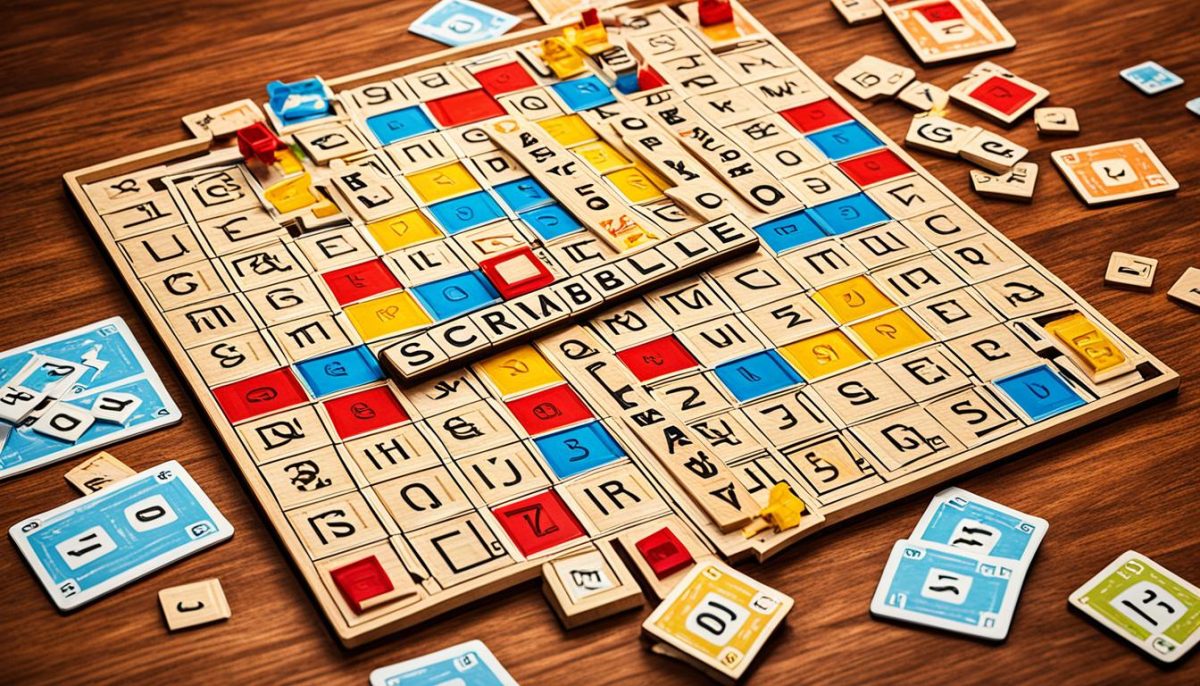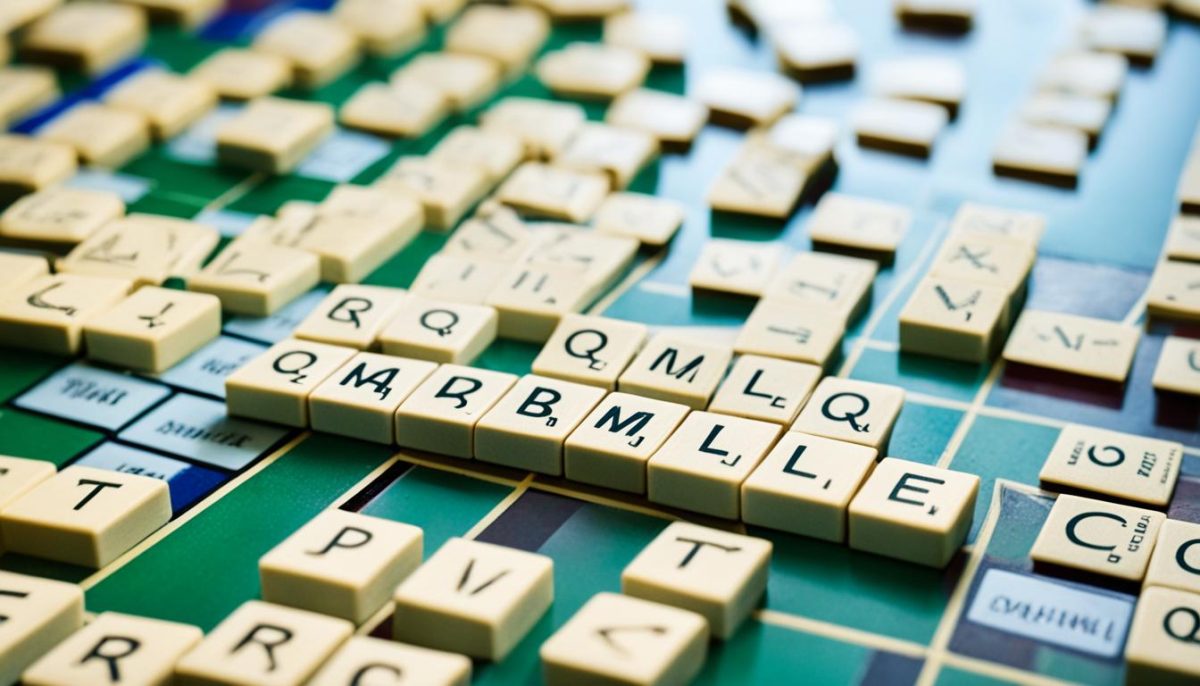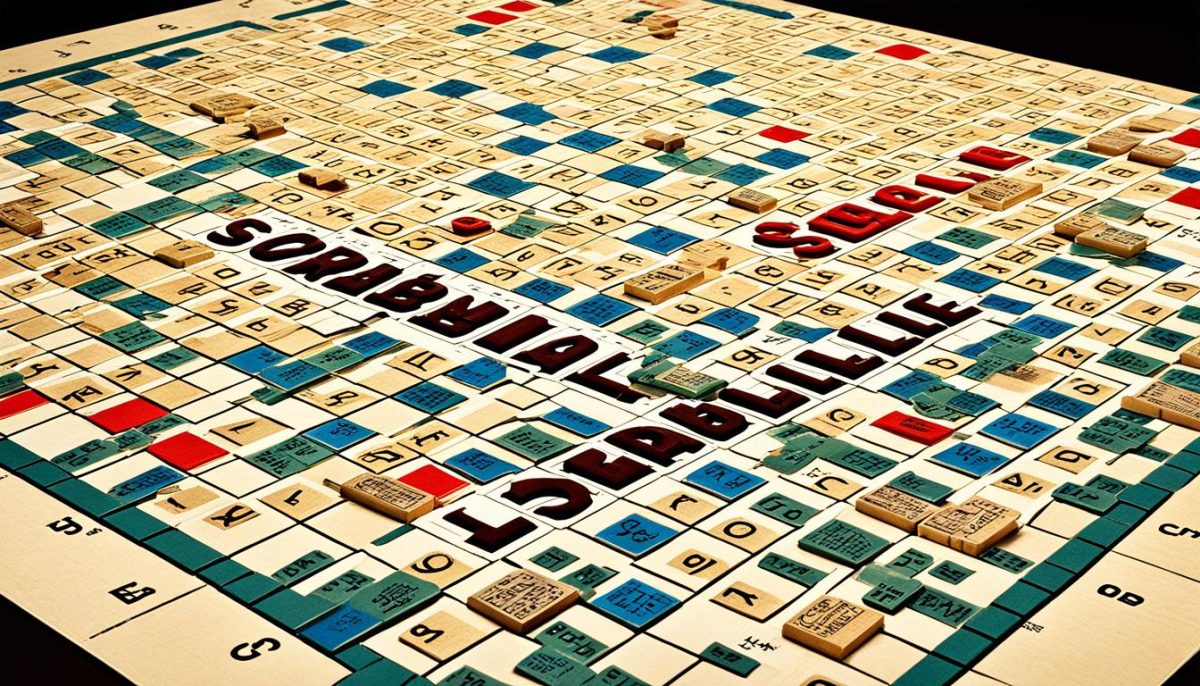As I dive into the Scrabble game history, I’m excited to unveil the fascinating story behind its invention. Unraveling this mystery takes us back to the Great Depression, a time when an unemployed architect named Alfred Mosher Butts channeled his love for words and puzzles into creating what we now know as Scrabble. His innovative approach combined elements of anagrams and crosswords, resulting in a unique word game that captivated minds globally.
What began as a simple idea soon evolved into an international phenomenon. Alfred Butts’s journey from conceptualization to the development of the Scrabble game showcases the creativity and ingenuity involved in its invention. By focusing on the origins and growth of this beloved word game, we can truly appreciate the lasting impact it has had on players worldwide. Let’s delve deeper into the history and evolution of Scrabble to understand how it transformed from a modest game into an iconic cultural phenomenon.
The Origins of Scrabble
The story of Scrabble’s inception is one of creativity and persistence, with Alfred Mosher Butts at its heart. As an architect during the Great Depression, Butts sought to invent a word game that combined the enjoyment of anagrams with the structural puzzle of crosswords. His efforts in the realm of word game development led to what we now recognize as Scrabble.
The Birth of an Idea
Inspired by the lexicon craze of the 1930s, Alfred Butts began to conceptualize a game that would captivate word enthusiasts. He meticulously studied newspaper crossword puzzles and frequency analysis of letter usage in the English language. This analytical approach resulted in the Scrabble prototype, initially called ‘Lexiko.’ Butts endeavored to bring this blend of letter tiles and board framework to life.
Early Versions and Initial Reception
During the early stages, Butts renamed his creation to ‘Criss-Crosswords.’ However, he faced numerous challenges in game patenting and marketing the game. The public’s initial reactions were lukewarm, but Butts did not lose hope. Persistence was essential as he struggled to find a game manufacturing partner that would recognize the game’s potential.
Evolution into the Game We Know Today
Scrabble’s transformation from obscure hobby to mass-market success was due in large part to James Brunot. Brunot not only refined the rules but also trademarked the name ‘Scrabble.’ This pivotal change, combined with the involvement of major game manufacturer Selchow and Righter, spearheaded the game’s widespread recognition and popularity. The Scrabble name origin and its current mass-market success are emblematic of the tenacity and vision that Butts and Brunot shared.

As Scrabble’s journey unfolded, each milestone marked an evolution in game manufacturing and crossword puzzle enhancement, resulting in the beloved word game enjoyed by millions today.
Invented Scrabble Game
When Alfred Butts, the inventor behind Scrabble game, set out to create what would become a worldwide phenomenon, his unique Scrabble design drew inspiration from his background as an architect. Butts’s analytical mindset drove him to meticulously study the frequency of letter usage in the English language, which directly influenced the distribution and point values of Scrabble tiles.

Butts’s game required players to harness their linguistic skills, making Scrabble word challenges both entertaining and intellectually stimulating. The design’s success lies in its careful balance, allowing for both luck and strategy to play pivotal roles. The intricacy of the game’s design showcases Butts’s brilliance and his remarkable ability to blend education and fun.
Butts’s initial version of the game, which he called Lexiko, morphed into the now-iconic Scrabble we know today, without losing the core elements of challenging wordplay. The deliberate choice of letters and their respective values paved the way for endless Scrabble word challenges, fostering a game that has withstood the test of time.
| Aspect | Feature |
|---|---|
| Letter Frequency | Determined by Alfred Butts’ studies of English newspapers |
| Tile Distribution | 100 tiles, each with varying point values based on frequency |
| Point System | Low-frequency letters such as ‘Q’ and ‘Z’ have higher points |
| Game Board | 15×15 grid allowing for strategic placement |
| Combination of Elements | Anagrams, crosswords, and strategy |
The Legacy of Alfred Butts
It’s remarkable to see how Alfred Butts, with his innovative spirit and analytical mind, left an indelible mark on the world of word games. By creating Scrabble, Butts not only provided countless hours of intellectual entertainment but also enriched our vocabulary and strategic thinking. The mere fact that this game has transcended generations speaks volumes about its enduring appeal and cultural impact.
From its humble beginnings during the Great Depression to becoming a household name, Scrabble has achieved a unique status in both family living rooms and competitive arenas. The game’s ability to bring people together, challenge their minds, and spark friendly competition underscores its significance as more than just a pastime. It’s no wonder that Scrabble has been embraced by word enthusiasts globally, making it a staple in educational settings and international tournaments alike.
Alfred Butts’s dedication to perfecting Scrabble is a testament to his legacy—a legacy that stretches beyond the confines of a board game. His ingenious approach has inspired future generations to explore and innovate within the realm of educational word games. Indeed, Butts’s contributions have paved the way for many to pursue their passions for words, ensuring that his influence is felt far and wide. As we continue to play and enjoy Scrabble, we recognize the cultural and educational impact of Alfred Butts’s creation, celebrating a game that truly stands the test of time.

